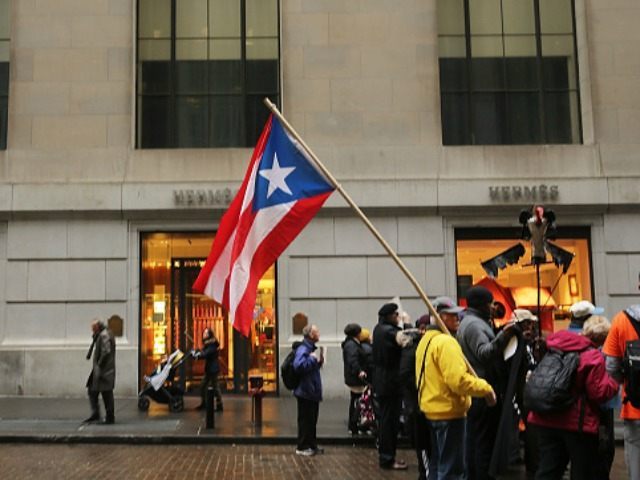Is anyone really surprised why Congress’ approval rating is in the low single digits?
Just look at the House of Representatives’ recent passage of a “reform” bill for Puerto Rico’s flailing economy. The Republican majority again failed to legislate fiscal responsibility, and the American public is getting sick and tired of the body’s double-speak.
Puerto Rico, the lavish-spending island of three million, racked up more than $70 billion in debt and recently announced that it would be unable to make its debt payments. For the first time in years, the GOP-controlled House was presented with the unique opportunity to pass a series of critical free-market reforms for the province that would have reversed decades of socialist decay.
Rather than pass real reform to get the American territory back on its feet, however, House leaders instead took the path of least resistance.
While rejecting pleas from the White House and Puerto Rico’s lobbyists for a direct bailout or open Chapter 9 bankruptcy, the House settled on a “reform” package as a middle-of-the-road solution. This compromise instituted a control board that could potentially make tough spending decisions which the politicians have, thus far, refused to make. One cheer, perhaps, is in order.
Unfortunately, we know in hindsight that the legislation which ultimately passed contained few conservative reforms.
After passage of the bill, analysts noticed that Section 206 might, in fact, open the door to something worse than bankruptcy. This section affords the new control board the power to reduce debt amounts even if the government entity that accumulated the debts is capable of repaying!
This is something that isn’t even allowed under bankruptcy. When insolvency is declared, debt amounts can only be reduced if an entity is in default and there is an agreement between the credit and the debtor. However, under Section 206, no agreement is necessary and, in fact, neither is default.
This raises the question – did Speaker Paul Ryan and the House Leadership sell conservatives a bill of goods? Is it a legislative defect – an error by the staff and lawyers? Was Section 206 included in the bill at the behest of the Treasury Department that wanted bankruptcy protection for Puerto Rico to begin with?
These are critical questions which conservatives demand to know the answers to. Were House Freedom Caucus members mislead intentionally? If not, then Congress should correct its mistakes and amend the bill. Silence, however, from the House Resources Committee and Senate/House Leadership will signal that something more nefarious is in play.
Speaker Ryan, we await your answer.

COMMENTS
Please let us know if you're having issues with commenting.